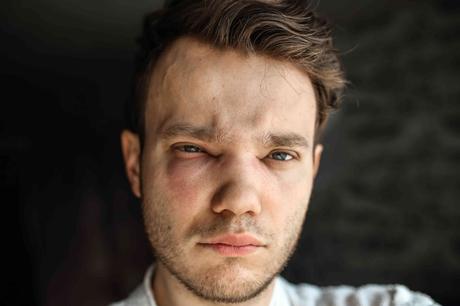
Angioedema is a type of dermatological condition that causes inflammation under the skin. This condition occurs in response to a drug or a foreign object that is allergic. The condition is usually not severe, but in some cases it may be a recurring condition in some patients due to complications of death.
Causes of angioedema
The exact cause of angioedema has not been discovered, but scientists have discovered that it may be due to several factors. Some commonly observed ones include:
Allergies and medications: Often this condition is the result of an allergic reaction. In such reactions the body’s immune system mistakes harmful substances for something harmful. As a result, it causes various reactions such as hiding, coughing and in this case swelling under the skin to hide certain chemicals within the body than the substance. Common allergens include foods such as nuts, eggs, and milk. In addition, insect stings, latex (in condoms) and certain types of drugs such as antibiotics and NSAIDs (non-steroidal anti-inflammatory drugs) are used in this condition.
Unknown factors: In addition to the above, other factors such as prolonged severe anxiety and stress, extended risks of infection, hot and cold temperatures, and strenuous physical exercise may also be responsible for the condition.
Common symptoms include swelling of the hands, feet, eyes, and areas of the genitals. A person suffering from this condition may also have itchy rash in the form of hive, which is an associated symptom. If you come across such symptoms then you should not delay the visit to the general practitioner.
Diagnosis and treatment
Knowing the cause of angioedema and its symptoms is important for treatment. There is no test that will indicate the exact cause of the disease. Some tests and exam doctors usually suggest
Assessing your symptoms and medical history
Tests for allergies and blood tests
Upon diagnosis and careful evaluation, your doctor may suggest antihistamines, steroid medications, and adrenaline auto-injectors. You should consult a general practitioner if you face suspicion of angioedema or are entertained. After the relevant diagnosis the doctor will direct you to a dermatologist if necessary.
Symptoms
- Swelling, repeated episodes of swelling of the face, lips, tongue, organs and genitals
- Severe abdominal pain (sometimes)
- Slightly less sensation in affected areas
Disease duration
- When a person has normal AE, it usually goes away in 3-4 days without treatment or cure.
- Moderate and severe cases require appropriate treatment and recovery depends on the care taken by the patient.
- Scars can last 6–12 months or longer.
Testing and testing
- Skin test
- blood test
- Needle check
- Older medical details
Ayurvedic treatment for Angioedema
1. Detox Standard Powder:
This is an herbal ayurvedic preparation that contains ingredients like parwal pishti, shukta pishti, giloy satv, kamdudha ras, shwet parpati, etc. As the name suggests it helps in overall detoxification of the body. This herbal powder supports the digestive system of an individual.
Recommended Dosage: Take 1 sachet twice daily with normal water.
2. Trikatu Tablet:
As the name suggests three ingredients are used for its preparation like Shunthi, Pippali, & Maricha. These herbs in combination deal with the loss of appetite, gas, flatulence, bloating, abdominal distension, weak digestion, Constipation, abdominal pain, etc.
Recommended Dosage: Take 1 tablet twice daily with normal water.
3. Curcumin Capsule
Curcumin Capsule helps in pacifying all three doshas. Curcumin Capsule is beneficial for variety of skin conditions like Acne, Eczema, Psoriasis, and Dermatitis. This Capsule contains standardized extract of the herb Curcumin (Curcuma longa). Curcumin is the active ingredient in Turmeric having powerful Anti-inflammatory, Antibacterial, Antifungal, Anti-microbial and Antioxidant properties.
Recommended Dosage: Take 2 capsules twice daily.
4. Amrit Tulsi Ras
This herbal preparation is in drops form prepared from five types of Tulsi. Shama Tulsi (Ocimum sanctum), Rama Tulsi (Ocimum gratissimum), Kapoor Tulsi (Ocimum canum), Shwet Tulsi (Ocimum basilicum), Nimba Tulsi (Ocimum citriodorum) that provides good result in all allergic reactions.
Recommended Dosage: Take two to three drops twice daily.
